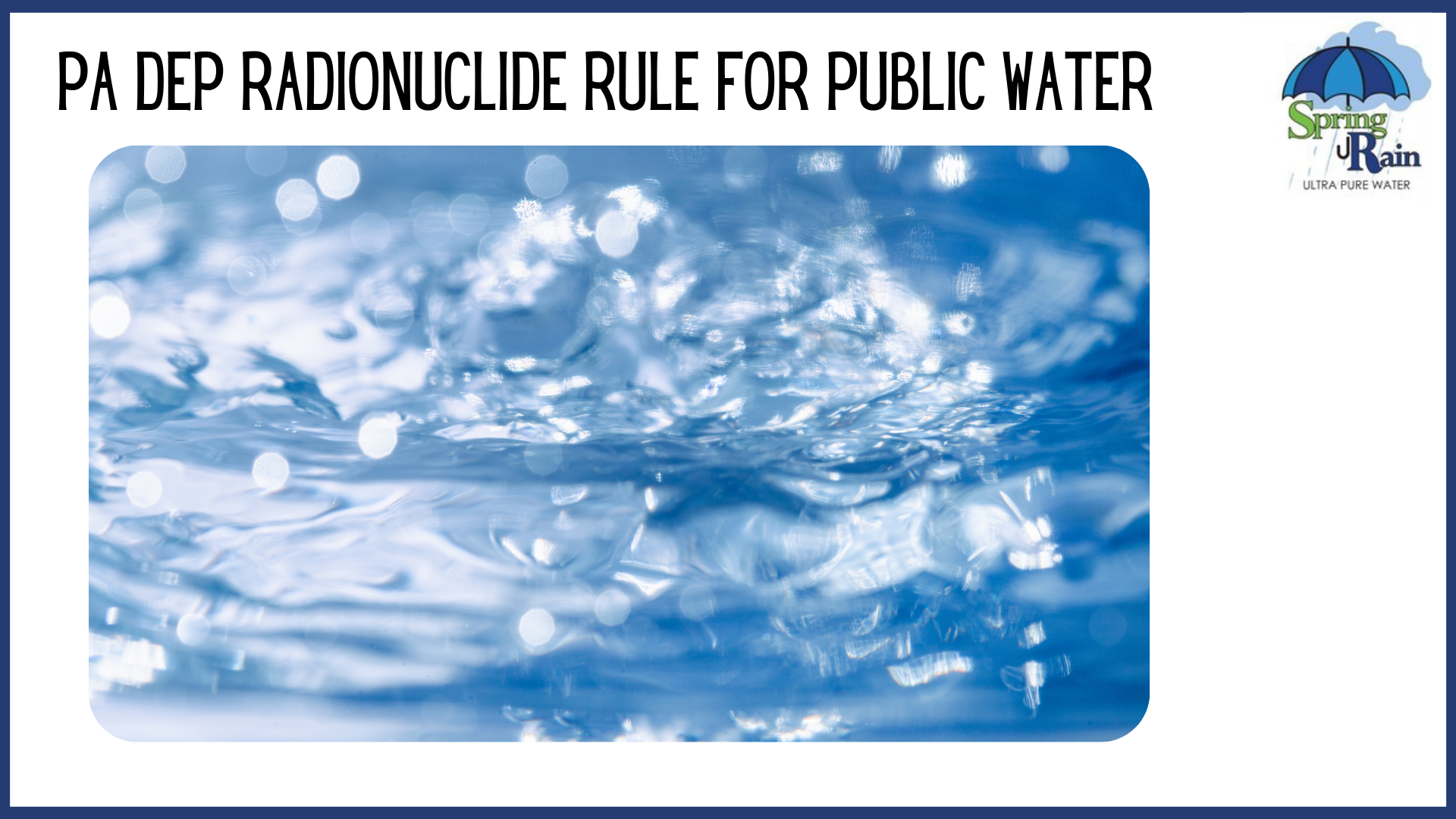Regulations for radionuclides in drinking water first became effective in 1976. The revised Radionuclides Rule required implementation for some systems starting in 2005.
The rule was revised to improve public health protection by requiring monitoring at all entry points to a drinking water distribution system, to create a new standard for uranium, change monitoring frequencies, and create new monitoring requirements for radium-226 and radium-228.
The revised Radionuclides Rule applies to all community water systems (both surface and groundwater) and requires them to sample for gross alpha, beta/photon, and tritium activity; radium-226 and 228; alpha particle activity from uranium; and gross alpha and beta radiation. In lieu of monitoring at entry points, as required by the revised Radionuclides Rule, small water systems (serving < 10,000 people) may conduct a single sampling event for alpha and beta radiation contamination.
The Radionuclides Rule requires that each entry point to a community system or each storage tank be tested at least annually and monitored quarterly for gross alpha and beta particle activity and for radium-226 and 228.
Entry point samples must meet the following criteria: gross alpha particle activity concentration of 20 picocuries per liter (pCi/L); beta particle activity concentration of 5 milli-rad per hour (mrad/h) above background; tritium concentration in both entry point and distribution system samples must be below 15,000 picocuries per liter (pCi/L); and concentration of uranium must not exceed 5 micrograms per liter (µg/L).
Quarterly monitoring for gross alpha and beta particle activity and for radium-226 and 228 is required only at the entry point if the small system has elected this option to demonstrate compliance with the Radionuclides Rule. In general, quarterly monitoring is not required as long as entry point samples do not exceed the criteria for gross alpha and beta particle activity and radium-226 and 228.
Radiation samples must be analyzed by a state-licensed laboratory. All other chemical parameters (hardness, alkalinity, pH, conductivity, etc.) must be analyzed every six months; additional parameters (nitrate and nitrite) need only be analyzed annually.
If a sample analysis does not meet the required limit for uranium or gross alpha and beta particle activity, then more frequent monitoring is required until the value meets the criteria. If other parameters are out of compliance, then corrective action is required within 60 days or additional monitoring must be conducted within 30 days to establish the baseline concentration. These samples will not become part of the official reporting data submitted under the Safe Drinking Water Act (SDWA).
When levels for gross alpha and beta particle activity and radium-226 and 228 are above the criteria, then another sample must be taken within 30 days. If corrective action is required but cannot be completed in that timeframe, then additional samples of source water must be submitted. If corrective actions are required but it takes longer than 90 days to complete them, the system becomes subject to enforcement under SDWA.
The Radionuclides Rule requires notification of customers within 15 days after a sample has been taken and analyzed if any parameter tested is found to be out of compliance as long as the system provides adequate notice. Notification must be done by mailing or handing customers a copy of the test results or posting a notice in a public place that is accessible to all customers.
Radionuclides can cause thyroid cancer, leukemia, and other forms of cancer.
If you have any questions about this topic, please contact the Bureau of Safe Drinking Water at 1-800-426-4791 or visit www.dep.state.pa.us/dep/dswe/.
If you believe that your water service is not in compliance with Pennsylvania's Radionuclide rules, you can request a copy of the town's water quality reports from your local Department of Health. To request independent testing of your town's water supply, you can contact an environmental laboratory.
To ensure that your personal water supply is safe, you may want to consider a whole house filtration system or a reverse osmosis system for your drinking water.
The team at Spring Rain Inc. would be happy to test your water and provide a recommendation.

Recent Comments